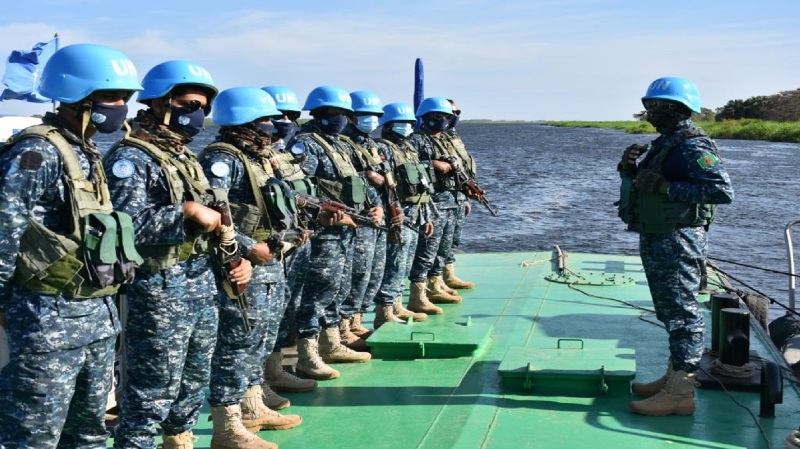The Mohammad Yunus-led interim regime’s decision to involve the Bangladesh Navy to manage all operations at Chittagong Port for the next six months is aimed at facilitating the arrival of and subsequent disbursement of “sensitive equipment” to Myanmar’s Rakhine State, Northeast News has reliably learnt.
No sooner did Shipping Ministry Adviser Brigadier (retd) Shakhwat Hossein announced last evening that the Navy would now manage all operations at Chittagong Port, pending a final handover of the New Mooring Container Terminal (NCT) to three foreign port logistics companies, senior naval officers began scouting for two key equipment required for sea-depth surveys.
Earlier this morning, Tarafdar Mohammad Ruhul Amin, the Managing Director of Saif Powertec, whose contract for maintaining the NCT is set to expire on July 7, was invited by senior Bangladesh Navy officers to discuss possibilities of handling operations, especially sea depth survey, as well as appropriate cost for the services that he might extend.
Chittagong Port Authority (CPA) sources familiar with a range of issues involving the Navy’s management of operations said that officers were on “immediate lookout” for a “sub-bottom profiler and a side-scan sonar”, which are usually used for surveying ocean beds to gauge the depth of water over wide areas.
A side-scan sonar is a specialised active sonar system that creates images of the seafloor and objects on or near it by emitting acoustic pulses and analysing the returning echoes. It is a valuable tool for mapping seafloor terrain, locating underwater objects and conducting marine archaeological surveys.
On the other hand, a sub-bottom profiler (SBP) is a type of sonar system used in marine geophysical surveys to map and characterise the layers of sediment and rock beneath the seafloor. Essentially, it uses sound waves to “see” what lies below the seabed, much like an ultrasound works in medical imaging.
“Bangladesh naval officers need these two equipment to urgently begin work on a survey that would allow them to measure the depth of the sea. This is aimed at smooth and unhindered access of large ships in specific areas of the sea,” a CPA official said on the condition of anonymity.
This, the sources said, raises questions on whether by taking control of the Chittagong Port, the Bangladesh Navy would begin operations to serve the interests of another foreign navy in and around Myanmar.
Shakhawat Hossein said on July 2 that the Yunus-led interim regime was actively considering awarding Dubai-based global port logistics company, DP World, the responsibility of operations at the Chittagong NCT. “The approval for this has come from the highest quarters of the interim government,” Hossein said.
Pointing out that a naval dockyard in the larger Chittagong Port area was also being expanded, Hossein said that the CPA would sign an agreement with the Navy which will expect some cooperation from Saif Powertec that has had 16-17 years of experience.
The Yunus-led interim regime has all but made up its mind to bring in private players, including DP World, Singapore’s PSA International and Abu Dhabi-based AD Ports Group for handling operations at the NCT.
AD Ports Group, one of the world’s leading facilitators of global trade, logistics and industry, and Saif Powertec are said to have signed a Memorandum of Understanding (MoU) to potentially cooperate on operational projects and projects under development for various Bangladeshi ports.
ALSO READ: Former Bangladesh PM Sheikh Hasina sentenced to six months in contempt case
A World Bank subsidiary, International Finance Corporation (IFC), with whose executives CPA Chairman Rear Admiral Moniruzzaman recently held meetings in Palo Alto, California, will act as an advisor to DP World.















